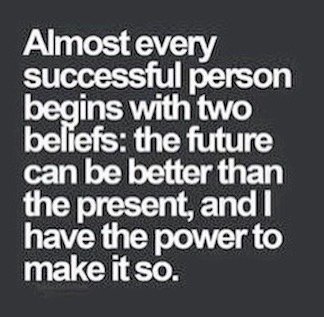What Is Your Life’s Blueprint? Dr. Martin Luther King’s Less-Known Speech Teaches 3 Leadership Lessons We Can All Use Now
Issue 218 — January 16, 2023
January 16, 2023: The nation celebrates the birthday of Civil Rights leader Dr. Martin Luther King today.
For many, the holiday acknowledging Dr. King’s transformational significance in American History has become primarily a welcome long weekend off from work. For others, it’s the opportunity to reflect on Dr. King’s legacy in secular and religious settings, as President Joe Biden did at the Ebenezer Baptist Church in Atlanta, where King had been the pastor.
As one indication of progress the U.S. has made toward racial equality, the church’s current pastor is a U. S. Senator, Raphael Warnock. Yet, as President Biden challenged those in the full pews where many heads were nodding in agreement, we are again in a time of choosing, between love and hate, community and chaos.
King’s actual birthdate is January 15. Born in 1929, he might well have still been alive to hear Biden’s speech and attend other celebrations had he — who preached nonviolent social change — not been murdered by an assassin’s bullet in 1968.
Often on this day, I have reshared King’s most famous and most quoted “I Have a Dream” speech. Its soaring rhetoric and high moral call to action retains its power to inspire.
But today, I highlight a lesser-known speech that he gave to students of Barratt Junior High School in 1967. In this speech, he asked the students to consider the question of what their life’s blueprint would be.
In this speech, King demonstrated at least three leadership lessons we can all use today in whatever seat we are sitting.
Leaders must create meaning so people understand why they are being asked to do the work, and can apply it to themselves. King was especially masterful at using story and metaphor to do this. It behooves all leaders and aspiring leaders to study his speeches and emulate those methods. By describing a blueprint of a house as an organizing metaphor, he made it easy for the students to grasp the meaning and apply it to themselves in planning their own lives.
Leaders’ messages are most powerful when they speak with values-based moral authority as well as positional authority. As a minister as well as a known Civil Rights movement leader, King clearly had the positional authority. But he also spoke in moral and values terms, when he counseled the students: “And I say to you, my young friends, doors are opening to you — doors of opportunities that were not open to your mothers and your fathers — and the great challenge facing you is to be ready to face these doors as they open.”
The greatest leaders call people to their higher selves, and inspire them to achieve their potential. Let’s start with noting that the audience was middle school students. This is not a constituency that many famous and sought-after speakers would prioritize. Though King noted he was very busy with meetings that day, it was clear he intentionally wanted to deliver his message to boys and girls at that impressionable age. His most thunderous exhortation to them was to be excellent in whatever they do: “And when you discover what you will be in your life, set out to do it as if God Almighty called you at this particular moment in history to do it. Don’t just set out to do a good job. Set out to do such a good job that the living, the dead or the unborn couldn’t do it any better.”
These same leadership lessons are applicable to all movements. Activist, organizer and founder of The Janes and the Midwestern Academy that has taught thousands of people how to make sustainable social change, Heather Booth, wrote about the power of grassroots organizing in a Take The Lead Power to Change Story. Not surprisingly, as was my personal experience, she had learned these basic organizing techniques in the Civil Rights Movement. Booth’s example applied those organizing techniques to women’s rights. After learning about women pregnant because of sexual assault, seeking abortions that were illegal in most states in the 1960’s — as they are again today in many states, Booth points out — she organized a network of women who called themselves The Janes to get information about safe providers to women who needed it.
But whether you are leading a social movement or a Fortune 500 company, an entrepreneurial venture, a nonprofit service organization, a small team within any of those, or are an individual contributor, the three leadership lessons Dr. King exemplified in his speech to the Barratt Junior High School Students in Philadelphia apply.
May Dr. Martin Luther King’s legacy always inspire us to lead effectively, have the courage to pursue a vision of equality and justice even when the going is tough, and to inspire the next generation to excellence in whatever blueprint they choose to create for their own lives.
GLORIA FELDT is the Cofounder and President of Take The Lead, a motivational speaker and expert women’s leadership developer for companies that want to build gender balance, and a bestselling author of five books, most recently Intentioning: Sex, Power, Pandemics, and How Women Will Take The Lead for (Everyone’s) Good. Honored as Forbes 50 Over 50 2022, and Former President of Planned Parenthood Federation of America, she is a frequent media commentator. Learn more at www.gloriafeldt.com and www.taketheleadwomen.com. Tweet Gloria Feldt.




